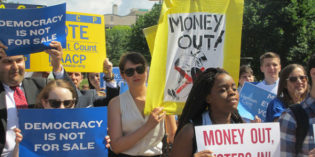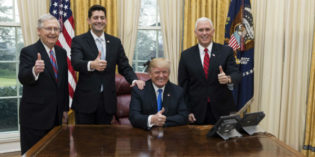Extending human and civic rights

Reforming the Gender Recognition Act
In 2017, the British government announced it would consult on amending the Gender Recognition Act 2004 to introduce the principle of self-determination for transgender people. With this process currently stalled amid increasingly acrimonious debates, Peter Dunne sets out the proposed legal reforms and points of contention.

Critical actors and abortion law: a group of individuals in Northern Irish politics obstructs change
There are various reasons why progress on legal abortion in Northern Ireland has been blocked over the years. Key among them is that individual politicians rule out any suggestion of change, writes Jennifer Thomson. She argues that more attention should be given to the actions of individual actors, considering their role can often be as important as that of political parties or institutions.

The good, the bad and the ugly arguments for ditching the EU Charter of Fundamental Rights
One of the most contentious pieces of legislation to be put before Parliament – the EU (Withdrawal) Bill – now faces scrutiny and probable amendments in the Lords. From a human rights perspective, writes Joelle Grogan (Middlesex University), one of the most concerning aspects of the Bill is the exclusion of the European Union Charter of Fundamental Rights from the corpus of EU law to be incorporated into UK law. She assesses the arguments being made to exclude it, concluding that the only plausible explanation for rejection of Charter rights is the rejection of rights.

American democracy sold to the highest bidder
If the quality of democracy is to be measured by the extent to which it constrains the economically dominant, then American democracy is failing, writes George Tyler. Recent research has shown how campaign financing is skewing policy influence towards top earners. This is in contrast to many northern European countries, which can offer practical models for the US to follow.

Increasing ethnic minority representation: why both political parties and electoral districts matter
National parliaments in Western democracies remain far whiter than the increasingly diverse populations they represent. Benjamin Farrer (Knox College) and Josh Zingher (Old Dominion University) find that the explanation for this lies in the interaction of local demographics and political parties, and that as a result centre-left parties in the US, UK and Australia have been more successful at getting ethnic minority candidates elected.

Accountability in a one-party system: the task of gauging public opinion in Vietnam
Vietnam is a one-party state: it is characterised variously as ‘not free’, ‘developmental’ and ‘responsive-regressive’. Dennis Curry explains how the UN Development Programme and a local think-tank worked together to get an insight into what citizens think of public service delivery and local governance. Their PAPI survey shows a growing concern for the environment, although it […]

Book review | Know Your Place: Essays on the Working Class, by the Working Class
Inspired by the collection The Good Immigrant, Know Your Place: Essays on the Working Class by the Working Class brings together 22 stories reflecting on working-class lives and experiences in the UK today. Edited by Nathan Connolly, this volume offers tales of sadness, struggle, resilience and resistance, all told with warmth and love, that show how class inequality is both personal and […]

The Chinese Communist Party has growing sway in Western universities
In recent years, China has fostered academic links with Western universities by funding Confucius Institutes and sending its students to study abroad. As the recent uproar over the decision of Cambridge University Press to censor a list of journal articles for the Chinese market has highlighted, it also exerts growing influence in academic publishing. Alexander […]

Brian Klaas: ‘The incentives for a Trump 2.0 will be exactly the same as the incentives for Trump’
In his first year in power, argues Brian Klaas (LSE), Donald Trump has deployed the tactics of despots and begun to corrode the institutions of US democracy. What happens next? Democratic Audit editor Ros Taylor talks to him about his new book, The Despot’s Apprentice. Mike Pence, Paul Ryan, Donald Trump and Mitch McConnell celebrate […]



 Democratic Audit's core funding is provided by the Joseph Rowntree Charitable Trust. Additional funding is provided by the London School of Economics.
Democratic Audit's core funding is provided by the Joseph Rowntree Charitable Trust. Additional funding is provided by the London School of Economics.